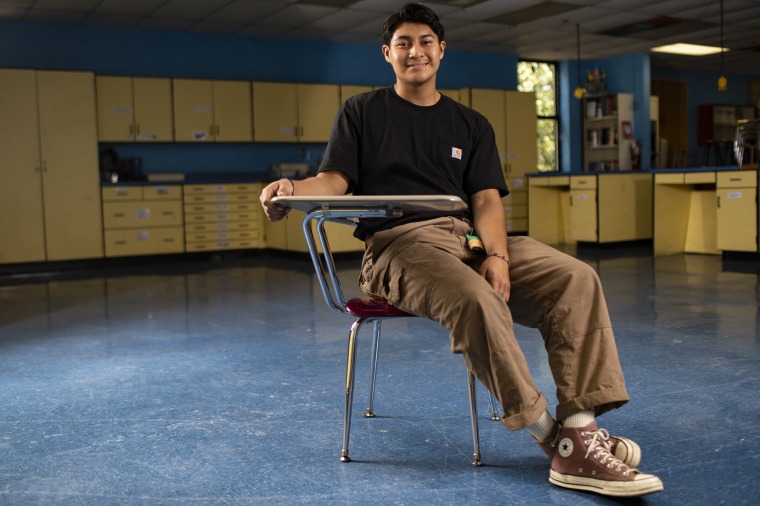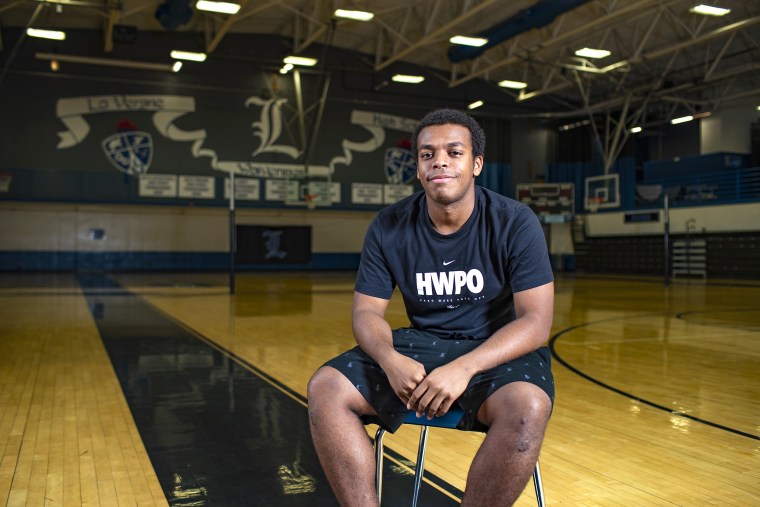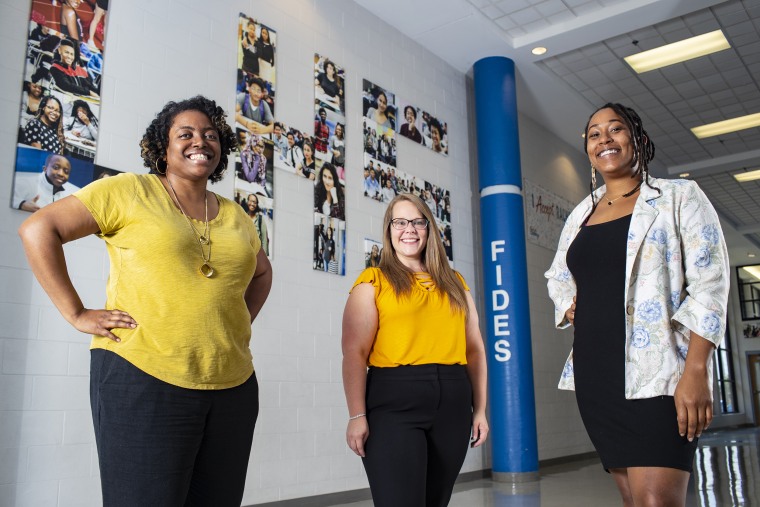This is indeed alarming.
"There are 4 million fewer students in college now than there were 10 years ago, a falloff many observers blame on Covid-19, a dip in the number of Americans under 18 and a strong labor market that is sucking young people straight into the workforce."
We cannot underestimate the red tape involved in college and financial aid applications. We've been through that as parents and it's beyond stressful. The steady decline isn't only for recent high school graduates, but also older adults. In another blog post on declining enrollment, what we are witnessing, as well, is a "demographic cliff" with far fewer Latinas/os going to college.
The claim of elitism is also injurious even if aspects of this are true. Expressed differently, colleges and universities aren't doing a good job at conveying why a college degree is good for everyone. Many of us have called for a long time for greater community involvement so as to ameliorate these perceptions and claims. This frequent vacuum in outreach and positive influence in our communities risks getting higher education caught up in the culture wars as we're seeing today. After all, both financially and symbolically, this is the worst time in our history to be "out of reach."
With much fewer students going to college, the future of many colleges are at stake. Thanks to Dr. Daniel Estrada for sharing.
-Angela Valenzuela
Why Americans are increasingly dubious about going to college
This story about college enrollment decline was produced by The Hechinger Report, a nonprofit, independent news organization focused on inequality and innovation in education.
Even as freshmen nervously arrive on campus for the fall semester, policymakers are grappling with what they say has become an “alarming” decline in the number of high school graduates willing to invest the time and money it takes to go to college.
A little-understood backlash against higher education is driving an unprecedented decline in enrollment that experts now warn is likely to diminish people’s quality of life and the nation’s economic competitiveness, especially in places where the slide is most severe.
“With the exception of wartime, the United States has never been through a period of declining educational attainment like this,” said Michael Hicks, director of the Center for Business and Economic Research at Ball State University’s Miller College of Business.
There are 4 million fewer students in college now than there were 10 years ago, a falloff many observers blame on Covid-19, a dip in the number of Americans under 18 and a strong labor market that is sucking young people straight into the workforce.
 But while the pandemic certainly made things worse, the downturn took hold well before it started. Demographics alone cannot explain the scale of this drop. And statistics belie the argument that recent high school graduates are getting jobs instead of going to college: Workforce participation for 16- to 24-year-olds is lower than it was before Covid hit, the Bureau of Labor Statistics, or BLS, reports.
But while the pandemic certainly made things worse, the downturn took hold well before it started. Demographics alone cannot explain the scale of this drop. And statistics belie the argument that recent high school graduates are getting jobs instead of going to college: Workforce participation for 16- to 24-year-olds is lower than it was before Covid hit, the Bureau of Labor Statistics, or BLS, reports.
Focus groups and public opinion surveys point to other, less easily solved reasons for the sharp downward trend. These include widespread and fast-growing skepticism about the value of a degree, impatience with the time it takes to get one, and costs that have finally exceeded many people’s ability or willingness to pay.
There has been a significant and steady drop nationwide in the proportion of high school graduates enrolling in college in the fall after they finish school — from a high of 70% in 2016 to 63% in 2020, the most recent year for which the figure is available, according to the National Center for Education Statistics.
The decline is even worse in some states, though not all have data for the same periods of time.
The proportion of high school graduates in Tennessee who are going directly to college, for example, has fallen to 53% — down 11 percentage points since 2017. In Indiana, it dropped to 53% in 2020, down 12 percentage points from five years earlier and a pace state Commissioner for Higher Education Chris Lowery has called “alarming.”
In West Virginia, 46% of 2021 high school graduates went on to college the following fall, 10 percentage points below that state’s high of 56% in 2010. Fifty-four percent of 2021 high school grads in Michigan went straight to college, down 11 percentage points from 2016.
In Arizona, 46% of high school graduates in 2020 went to college the following fall, a drop from more than 55% in 2017. In Alabama, recent high school graduates’ college-going in 2020 fell to 54%, down 11 percentage points since 2014. And in Idaho, college-going has plunged to 39%, down 11 percentage points since 2017.
 Americans are increasingly dubious about the need to go to college. Fewer than 1 in 3 adults now say a degree is worth the cost, according to a survey by the nonprofit Strada Education Network, which conducts research into and financially supports ways of expanding access to higher education.
Americans are increasingly dubious about the need to go to college. Fewer than 1 in 3 adults now say a degree is worth the cost, according to a survey by the nonprofit Strada Education Network, which conducts research into and financially supports ways of expanding access to higher education.
“That conversation has come up more frequently — ‘Is it worth it?’” said Jennifer Kline, a counselor at Festus High School in Festus, Missouri, a state where the proportion of high school graduates going straight to college is down by 6 percentage points since 2017, to 61%. “I just have more and more parents who are saying, ‘Nope. You’re not going to do that. You’re not going to a four-year college.’”
Her students’ parents “just don’t value education the way they did in the past,” said Amanda DeBord, an adviser in a statewide program in Tennessee called Advise TN. “I feel like that’s been slipping for a few years.”
One Advise TN student who is headed to college, Ever Balladares, said his classmates’ parents in the Nashville suburb of La Vergne used to tell them, “If you don’t go to college, you’re a bum.” That has changed, however. “They don’t think that anymore.”
This is being made only worse by a growing unhappiness among recent university and college graduates with the value of the education they received.
More than 4 in 10 bachelor’s degree holders under 45 don’t agree that the benefits of their educations exceeded the costs, according to a survey by the Federal Reserve. Only a quarter in another survey, by the educational publishing and technology company Cengage, said that, if they could do it again, they’d take the same educational path.
That adds up to a lot of bad reviews passed down to younger siblings and classmates, for whom family and friends are the most trustworthy sources about whether to go to college, according to a survey by the Indiana Commission for Higher Education.
Meanwhile, months of discussion about whether the Biden administration will forgive all or some student loan debt has had the unintended consequence of reminding prospective learners how much people before them had to borrow to pay for college.
So has the fact that many of their parents are still paying back their own student loans.
From 2015 to 2019, Americans’ faith in higher education dropped more than their confidence in any other institution measured by the Gallup polling organization — an extraordinary erosion of trust, considering that this list includes the presidency, Congress, big business and the criminal justice system.
“There’s anti-elitism, anti-institutionalism, a perception that cost is out of control,” said Stephanie Marken, a partner in Gallup’s education division.
The problems have been evident for years, but colleges and universities in general have done little to address them.
They continue to advertise prices that few consumers actually pay but that discourage many from applying. They bury students in red tape, which is especially confounding for the increasing number of would-be applicants whose parents never went to college. And they often fail to make clear connections between academic disciplines and careers or keep up with the demands of the fast-moving labor market.
A degree does, in fact, still pay off. Workers with bachelor’s degrees earn 67% more than people with only high school diplomas, according to the BLS. More than half of “good jobs” — those with salaries of at least $35,000 for workers under age 45 and $45,000 for people 45 to 64 — call for bachelor’s degrees, the Georgetown University Center on Education and the Workforce estimates.



No comments:
Post a Comment